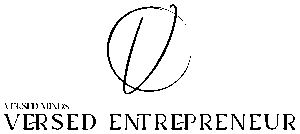When it comes to acing a job interview, essential tips for interview success include thorough preparation, effective communication, and boosted confidence. Let’s boil it down to the basics:
- Prepare carefully: Research the company, understand the role, and gather your materials.
- Communicate clearly: Listen actively, answer questions directly, and ask thoughtful questions.
- Show confidence: Be well-groomed, dress appropriately, and practice your answers.
Starting on the journey to interview success requires a blend of preparation, clear communication, and unshakeable confidence. From researching your prospective employer to planning your attire, each step paves the way for a promising interview experience.
I’m Gabrielle Reese, a seasoned entrepreneur and educator with a keen eye for empowering small business owners and aspiring leaders. From my extensive experience, I can guide you through the critical steps and tips for interview success to ensure you make a lasting impression. Stay tuned as we dig deeper into this subject.
Table of Contents
ToggleThe 5 C’s of Interviewing
When it comes to nailing your next interview, understanding the 5 C’s of Interviewing can set you apart from other candidates. These elements are character, culture fit, career direction, competence, and communication skills. Let’s break each one down:
Character
Your character is the backbone of your professional identity. It encompasses your integrity, work ethic, and reliability. Employers look for candidates who demonstrate honesty and a strong moral compass. According to a Harvard Business Review article, honesty is crucial because “lies and exaggeration will come back to haunt you.” Be genuine and let your true self shine through.
Culture Fit
Culture fit is about how well you align with the company’s values and work environment. Research the company’s mission and values beforehand. For instance, if a company emphasizes teamwork, highlight your collaborative experiences. Knowing the interviewer’s name and using it during the conversation can also help you blend in smoothly, as noted in the interview tips.
Career Direction
Employers want to know if your career goals align with the role and the company’s future. Be ready to discuss your long-term aspirations and how this position fits into your career path. This shows that you are not just looking for any job, but a role where you can grow and contribute meaningfully.
Competence
Competence refers to your ability to do the job well. Highlight your skills, experiences, and accomplishments that are relevant to the role. Bring several copies of your resume and a copy of your transcript to back up your claims. As suggested, focus on your strengths and what you can bring to the organization rather than apologizing for any lack of experience.
Communication Skills
Effective communication is key during an interview. Listen carefully to the interviewer, ensure you understand the questions, and answer them clearly and concisely. Good communication also involves asking thoughtful questions about the job and the company, which shows your genuine interest and preparation.
Mastering the 5 C’s of Interviewing can significantly boost your chances of success. Each element plays a crucial role in making a lasting impression on your potential employer.
Essential Preparation Steps
Research the Company
Before your interview, dive deep into researching the company. Understand its mission, goals, and job duties. Knowing this helps you tailor your responses and show genuine interest. For example, if you’re interviewing at a company that values innovation, you can highlight your creative problem-solving skills.
Research Tip: Look at the company’s website, recent news articles, and LinkedIn profiles of employees. This can give you insights into the company’s culture and current projects.
Review Your Resume
Take a close look at your resume and be ready to discuss past accomplishments. Focus on specific information that aligns with the job requirements. Include both paid and non-paid experiences that showcase your skills.
Resume Tip: Highlight achievements with numbers. For example, “Increased sales by 20%” is more impactful than “Improved sales.”
Practice Interview Questions
Mock interviews are a great way to prepare. Have a friend or family member ask you common interview questions. This helps you practice your responses and get comfortable with the interview format.
Common Questions to Practice:
- Why do you want to work for this company?
- What are your strengths and weaknesses?
- Tell me about a time you overcame a challenge.
Pro Tip: Use the STAR method (Situation, Task, Action, Result) to structure your answers. This provides a clear and concise response.
Gather Necessary Materials
Ensure you have all the materials you need for the interview. This shows you’re organized and prepared.
Checklist of Items to Bring:
- Copies of your resume
- Transcripts
- Reference list
- Questions to ask the interviewer
- Samples of your work if applicable
- Pen and paper for taking notes
Preparation Tip: Lay out your materials the night before to avoid any last-minute rush.
Dressing for Success
First impressions matter, especially at job interviews. Your appearance can significantly impact how the interviewer perceives you. Here’s how to ensure you look your best on interview day.
Grooming Tips
Proper grooming is essential for creating a polished appearance. Here are some key steps to follow:
- Haircut: Get a fresh haircut a few days before the interview. This ensures you look neat and professional.
- Nails: Keep your nails clean and trimmed. Well-groomed hands can subtly convey attention to detail.
- Beard/Moustache: If you have facial hair, make sure it’s neatly trimmed. A tidy beard or moustache looks more professional.
On the day of the interview, remember to:
- Shower or Bathe: Ensure you’re clean and fresh.
- Wash Your Hair: Clean hair looks and feels better.
- Use Extra Unscented Deodorant: Stay fresh without overwhelming scents.
- Avoid Perfume or Aftershave: Some people are allergic, so it’s best to avoid strong scents.
- Brush and Floss Your Teeth: A bright smile can leave a lasting impression.
- Use Mouthwash or Breath Mints: Fresh breath is a must.
- Bring a Small Mirror, Brush, and/or Comb: Quick touch-ups can be handy.
Clothing Tips
Your outfit should reflect the importance of the meeting. Aim to dress one step above what you would wear on the job, or at minimum, in good, clean dress clothing.
- Clean Dress Clothing: Ensure your clothes are clean, ironed, and free of stains or wrinkles.
- One Step Above Job Attire: If the job typically requires business casual, opt for business formal for the interview.
- Lay Out Your Clothing the Night Before: This helps avoid any last-minute issues and ensures everything is in place.
- Buy or Borrow Appropriate Clothing: If you don’t have suitable attire, consider borrowing or purchasing what you need.
Pro Tip: A good night’s sleep before the interview can help you look and feel your best.
By paying attention to your grooming and clothing, you can create a great first impression and boost your self-confidence. Your interview is too important to leave these details to the last minute.
During the Interview
Arrive Early
Arriving early for your interview is crucial. Aim to be there 10-15 minutes early. This shows punctuality and gives you time to relax before the interview starts. Upon arrival, follow any check-in procedures at the reception. Being courteous to receptionists can also make a positive impression.
Body Language
Your body language speaks volumes. Start with a firm handshake and a genuine smile. Maintain eye contact to show confidence and interest. Sit up straight with good posture, occasionally leaning forward to show engagement. Avoid crossing your arms, as it can seem defensive.
Answering Questions
When answering questions, focus on clarity and relevance. Make sure you understand the question before responding. If needed, ask for clarification. Use specific examples to illustrate your points, ideally following the STAR format (Situation, Task, Action, Result). This helps the interviewer see how your past experiences relate to the job.
Asking Questions
Prepare a list of thoughtful questions to ask the interviewer. This shows you’re genuinely interested in the role and the company. Here are a few examples:
- Job Duties: “Can you describe a typical day in this role?”
- Company Culture: “What do you enjoy most about working here?”
- Next Steps: “What are the next steps in the interview process?”
Avoid asking about salary or benefits in the first interview. Focus on understanding the job and the company better.
Next, let’s explore how to make a great first impression during your interview.
Making a Great First Impression
First impressions matter. Here’s how to make yours count.
Handshake and Smile
A firm handshake is your first chance to show confidence. When you meet your interviewer, offer your right hand and give a solid, but not bone-crushing, shake. Combine this with a genuine smile. Smiling helps to put both you and the interviewer at ease, creating a positive atmosphere.
Maintain eye contact while shaking hands and throughout the conversation. Good eye contact signals that you’re engaged and confident. If the interviewer can’t or doesn’t shake hands, still offer yours politely.
Building Rapport
Rapport is all about creating a connection. Start with some casual conversation. This helps to break the ice and makes both of you more comfortable. Topics like the weather, recent events, or something you noticed about the company’s office can be good starters.
Follow the interviewer’s lead during the conversation. If they seem chatty, engage more. If they are more reserved, keep your responses concise and to the point. The goal is to mirror their communication style to some extent, which helps in building a comfortable interaction.
A little bit of laughter is okay if it’s appropriate. It can lighten the mood and show that you are easy to work with. Just keep it professional.
Next, let’s discuss how to handle difficult questions during your interview.
Handling Difficult Questions
Interviews can sometimes feel like a minefield, especially when tough questions come up. Here’s how to handle them with grace and confidence.
Personal Questions
Sometimes interviewers ask personal questions that may feel a bit invasive. There are legal boundaries. Employers can’t ask about your age, marital status, religion, or other personal matters that are not job-related. If you find yourself in an uncomfortable situation, stay composed and redirect the conversation back to your skills and experience.
For example, if asked about your family plans, you might say:
“I prefer to focus on my professional goals and how I can contribute to this role. I’m very excited about the opportunities here at your company.”
Salary Discussions
Discussing salary can be tricky. If asked about your expected salary, keep your answer general. You don’t want to price yourself out of a job or sell yourself short. A good approach is to say:
“I would like to earn approximately the average salary for someone with my experience and qualifications.”
This shows that you are flexible and open to negotiation. Researching the average salary for the position beforehand can also help you feel more confident during this discussion.
Avoiding Negative Comments
Never speak poorly about past employers or colleagues. It can make you seem disloyal or difficult to work with. Instead, focus on what you learned and how it has prepared you for this new opportunity.
If asked why you left your last job, you could say:
“I am looking for new challenges and opportunities to grow professionally. I believe this position aligns well with my career goals and skills.”
This keeps the conversation positive and focused on your future, not past grievances.
Now that you know how to handle difficult questions, let’s move on to closing the interview effectively.
Closing the Interview
Ending an interview on a high note is crucial. It’s your last chance to make a strong impression and show why you’re the best fit for the job.
Positive Closing
When the interviewer asks if you have any final thoughts or questions, take this opportunity to emphasize your skills and abilities. This is your moment to highlight anything that makes you a great fit for the role that may not have come up during the interview.
For example, you might say:
“Before we wrap up, I want to reiterate my enthusiasm for this position. My experience in project management and my passion for the tech industry make me confident that I can contribute positively to your team.”
Finish by thanking the interviewer for their time and the opportunity to discuss the role.
Next Steps
Before you leave, it’s important to understand what comes next in the hiring process. You can ask about the timeline and any additional steps you should expect. This shows that you are proactive and genuinely interested in the position.
You could ask:
“Could you please tell me about the next steps in the hiring process? When can I expect to hear back from you?”
This not only provides you with valuable information but also keeps you on their radar.
Thank You Note
Sending a thank you note after the interview is a small but significant gesture. It shows appreciation and keeps you top-of-mind for the interviewer.
Write and send a thank you letter to everyone you spoke with during the interview. Make sure it’s typed and free of errors.
In your note, thank the interviewer for their time, re-emphasize your skills and enthusiasm for the role, and mention anything you might have forgotten during the interview.
Here’s a simple template:
“Thank you for taking the time to meet with me today. I am very excited about the opportunity to join [Company Name] and contribute to your team. My experience in project management and my passion for the tech industry align well with the goals of your company. I look forward to the possibility of working together.”
Sending this note within 24 hours of the interview can leave a lasting positive impression.
With these steps, you’ll be well on your way to closing your interview on a positive and professional note. Next, we’ll cover frequently asked questions about interview success.
Frequently Asked Questions about Interview Success
What are the 5 C’s of interviewing?
The 5 C’s of interviewing are key attributes that interviewers look for in candidates. These are:
- Character: Your integrity and honesty. Employers want to know if you are trustworthy and reliable.
- Culture Fit: How well you align with the company’s values and culture. This can determine how smoothly you’ll integrate into the team.
- Career Direction: Your long-term goals and how this position fits into your career path. It shows if you are looking to grow with the company.
- Competence: Your skills and qualifications for the job. This includes both hard and soft skills.
- Communication Skills: How effectively you can convey your ideas and listen to others. Good communication is essential in almost every role.
How can I impress the interviewer?
To impress the interviewer, focus on these strategies:
-
Behavioral Techniques: Use the STAR (Situation, Task, Action, Result) method to answer questions. This helps you provide clear and structured responses.
-
Professional Manner: Be punctual, dress appropriately, and show respect throughout the interview. A firm handshake and maintaining eye contact can make a strong first impression.
-
Small Talk: Engage in light conversation before the formal interview starts. This can help build rapport and make you more memorable.
-
Ask Thoughtful Questions: Prepare questions about the company culture, job duties, and team dynamics. This shows you are genuinely interested in the role and have done your homework.
What should I bring to an interview?
Make sure to bring the following essential materials to your interview:
-
Resume Copies: Bring several copies of your résumé. This is useful if you meet with multiple interviewers.
-
Transcripts and Certificates: Copies of your educational transcripts and any relevant professional certificates.
-
Reference List: A list of professional references, including their contact information.
-
Samples of Your Work: If applicable, bring a portfolio or samples that showcase your skills and achievements.
-
Questions to Ask: A list of questions you want to ask the interviewer about the role and the company. This shows you are prepared and interested.
By following these tips for interview success, you’ll be well-prepared to make a positive and memorable impression.
Next, we’ll dig into the nuances of handling difficult questions during your interview.
Conclusion
At Versed Entrepreneur, we understand that nailing a job interview can be a daunting task. That’s why we offer comprehensive guides and resources to help you steer every step of the process. Our goal is to equip you with personalized leadership approaches that not only improve your interview skills but also boost your overall career development.
Our extensive resources cover everything from preparing for the interview to making a great first impression. We provide actionable tips for dressing for success, handling difficult questions, and even closing the interview on a positive note. Each guide is designed with your success in mind, ensuring you have all the tools you need to stand out from the competition.
Personalized leadership approaches are at the core of what we do. We believe that each individual has unique strengths and potentials. Our materials are custom to help you leverage your personal attributes effectively, making you a more compelling candidate in any job interview scenario.
For more insights and tips on how to excel in your career, visit our Career Development section. Here, you’ll find a wealth of information to help you grow professionally and achieve your career goals.
Disclaimer: This article is not legal or financial advice. For personalized advice, consult a professional advisor.










